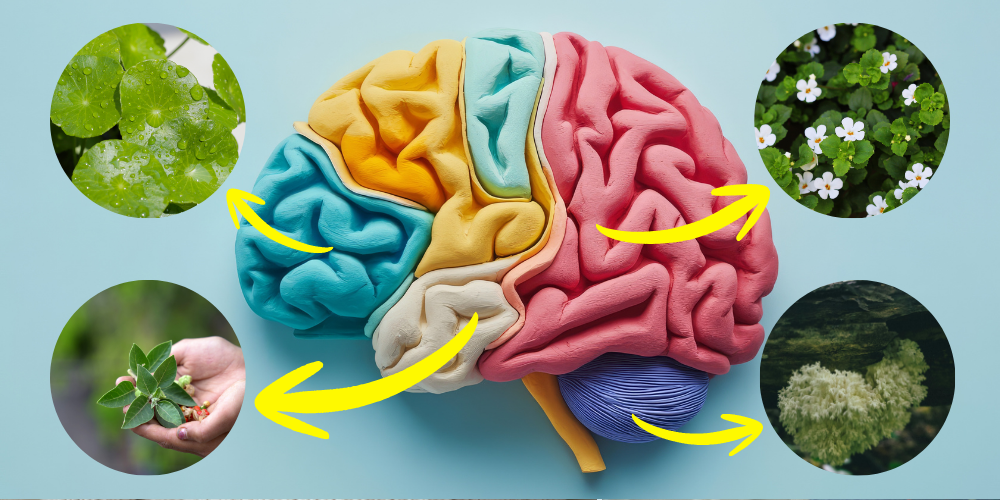
9 Most Powerful Herbs for Brain Health and Mental Sharpness
Ever walk into a room and forget why you’re there? Losing track of conversations mid-sentence? Lying awake at night worrying about things you can’t control? Walking into the kitchen and standing there, wondering what you came for?
You’re not broken. Your brain is just hungry, and nature has exactly what it needs.
While pharmaceutical companies rush to patent the next memory pill or anxiety medication, you have access to something far more powerful: herbs that have been nourishing human brains for thousands of years.
And here’s the exciting part: modern science is finally catching up, mapping exactly how these plant allies work their magic on specific areas of your brain.
Let me show you your brain’s herbal support system and how you can tap into it starting today.
The Hippocampus
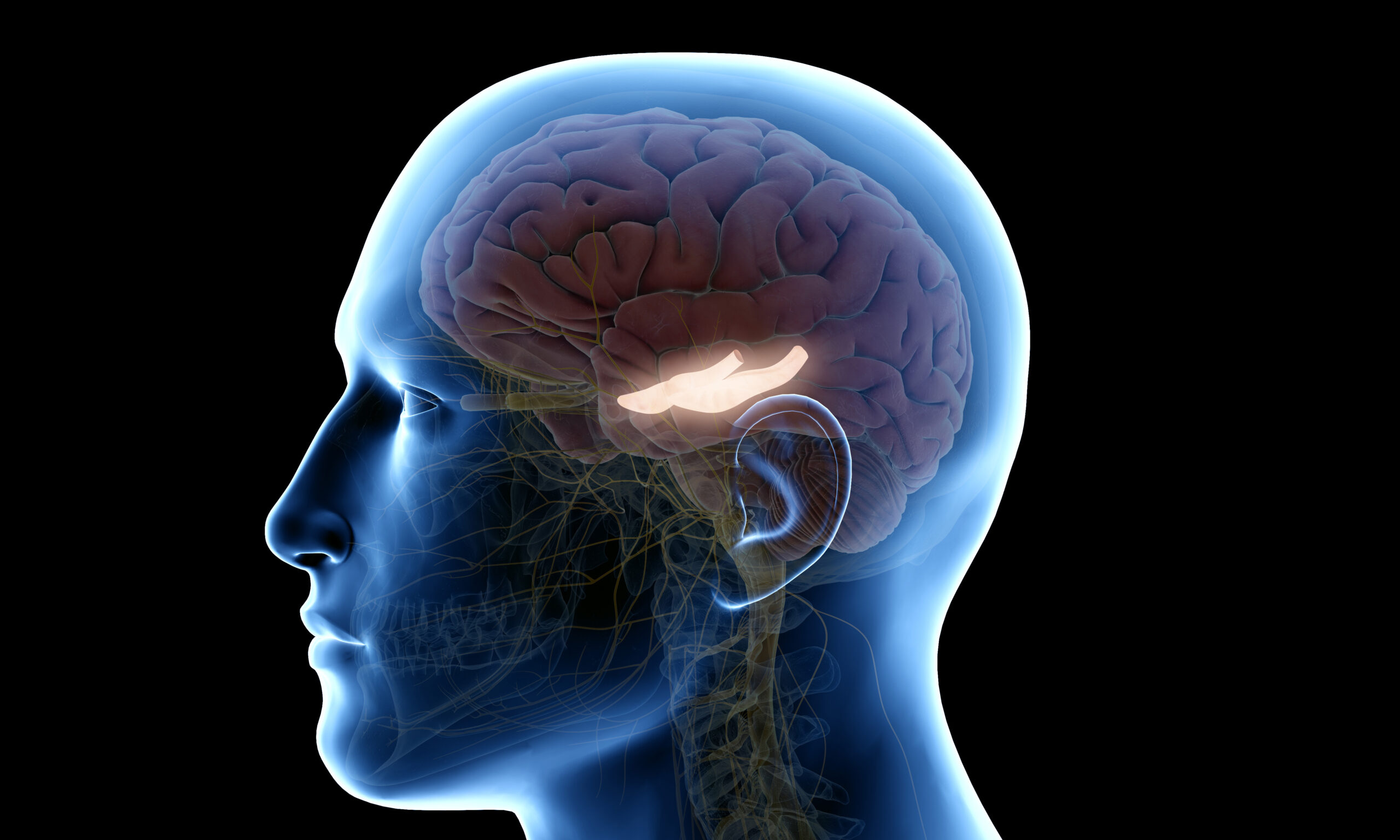
Deep in your brain’s temporal lobe sits your hippocampus—your memory command center. This is where your brain converts those fleeting moments into lasting memories. It’s why you remember your first kiss, your grandmother’s recipes, and the route to your favorite hiking spot. When your hippocampus thrives, you learn faster, recall names effortlessly, and even grow new brain cells.
But here’s the problem: stress, aging, and inflammation can shrink this vital region. The good news? Certain herbs can actually reverse this decline and keep your memory sharp.
Bacopa (Brahmi) is the ancient memory enhancer that science finally validated. Ayurvedic healers prescribed it for centuries, and now we know exactly why it works.
Bacopa stimulates your hippocampus to grow and adapt by boosting brain-derived neurotrophic factor (BDNF)—think of it as fertilizer for brain cells.
Studies show Bacopa extract improved object recognition memory and increased the formation of new neurons in the hippocampus. Human trials confirm it enhances memory and cognitive processing.
If you’re studying, learning a language, or tired of searching for your keys every morning, Bacopa offers gentle but powerful support without the jittery side effects of synthetic smart drugs.
Lion’s Mane Mushroom is your hippocampus’s best friend. This shaggy white fungus supports memory and it encourages your brain to grow new neurons.
Studies show that compounds from lion’s mane dramatically increased the length and branching of hippocampal neurons. Mice given lion’s mane showed significantly improved recognition memory in maze tests, and lab cultures revealed these mushroom molecules can double neuron growth.
Imagine recalling all names at social gatherings, learning that new skill you’ve been putting off, or staying mentally sharp as you age. And all from a daily dose of lion’s mane tea or tincture.
I started using lion’s mane a few months ago, and within just a week, I could feel the difference. It was like the fog lifted.
I kept taking it consistently for a month, and when I eventually stopped, something interesting happened, the effects stuck around.
I’m sharper now, more focused on what matters, and my thoughts are clearer and more organized.
What really struck me is how different this is from typical brain supplements. Most of them work while you’re taking them, then it’s like hitting a wall when you stop.
But lion’s mane actually works with your body to rebuild itself. It helps your brain regenerate on its own, so the benefits stay with you long-term.
Get your lion’s mane tincture here — it’s affordable, potent, and actually worth the investment. That’s the kind of support your brain deserves.
Ginkgo Biloba, one of Earth’s oldest tree species, increases blood flow to your hippocampus while shielding neurons from daily wear and tear. Clinical studies show ginkgo enhances cognitive function in people with early Alzheimer’s or mild cognitive impairment.
In Alzheimer’s models, it protected hippocampal cells from oxidative stress, helping preserve learning and memory. When you’re feeling foggy or forgetful, ginkgo could be the circulatory boost that brings mental clarity back.
Other powerful allies include sage for cognitive function, and turmeric (curcumin), which in animal studies helped clear beta-amyloid plaques and spur hippocampal neurogenesis—potentially slowing memory decline as you age.
The Amygdala

Your amygdala, two almond-shaped clusters deep in your limbic system, is your brain’s emotional sentinel. It processes every worry, fear, and anxious thought you experience.
When it’s overactive, you feel on edge, overwhelmed, unable to sleep. When it’s balanced, you feel calm, centered, and emotionally resilient.
Think about how anxiety steals your joy. The constant worry, the racing thoughts at 3 AM, the dread before social events. Your amygdala is working overtime, and it desperately needs support.
Lemon Balm has been soothing anxious minds since the Middle Ages, and science now confirms why it works. Studies show lemon balm extract reduces anxiety while improving mood and cognition.
Participants taking lemon balm reported feeling calmer and performed better on memory tests. The herb boosts GABA—the neurotransmitter that quiets brain activity—and may even raise serotonin, your happiness chemical.
Before that stressful meeting, difficult conversation, or when your mind won’t stop racing at night, lemon balm tea or tincture can take the edge off without the zombie-like side effects of pharmaceutical anti-anxiety medications.
Lemon balm is one of those herbs that truly deserves a permanent spot in your wellness routine. If you have access to forage it yourself or know a reliable source, that’s ideal.
But if you’re looking for a guaranteed high-quality, fairly-priced lemon balm tincture that you can trust, you can find one here.
Chamomile isn’t just a bedtime ritual, it’s a clinically proven anxiolytic. In controlled trials, chamomile extract significantly eased symptoms in people with generalized anxiety disorder compared to placebo.
Its compounds bind to the same brain receptors as some anti-anxiety medications, but gently, helping tone down an over-alert amygdala. Users report better sleep and calmer moods—all without dependency or side effects.
I grow my own chamomile right on my kitchen window, and it’s one of the best decisions I’ve made for my health. The peace of mind knowing exactly what you’re consuming: no pesticides, no additives… is priceless.
If you want to do the same, these are quality chamomile seeds that I trust. Once you have them growing, you’ll have fresh chamomile whenever anxiety or poor sleep strikes. It’s that simple.
Ashwagandha is stress’s natural adversary. This Ayurvedic adaptogen doesn’t mask stress, it helps your body resist it. Multiple studies show ashwagandha significantly reduces stress and cortisol levels.
In an 8-week trial, people taking ashwagandha experienced greater reductions in anxiety and morning cortisol than those on placebo. A 90-day study even noted improvements in memory and focus, proving that a calmer brain is a clearer brain.
Imagine waking up without that pit of dread in your stomach, handling challenges without emotional overwhelm, and thinking clearly under pressure. Ashwagandha protects your amygdala from constant overdrive.
Here’s something most people don’t realize: when you combine ashwagandha and lemon balm, you get a synergy that’s genuinely powerful. Two plants, two different mechanisms of action, working together to quiet an overactive mind.
If you struggle with racing thoughts, constant worry, or that familiar knot of dread in your chest, this combination is what actually helps you let go.
Try 20 drops of this ashwagandha and lemon balm blend, it’s specifically formulated with the exact plants we just discussed. People notice the difference within days.
Don’t forget lavender for anxiety and agitation, passionflower for tranquility, and holy basil (Tulsi) for stress resilience and mood enhancement. These allies reassure an overactive amygdala naturally, without the side effects that come with mood-regulating pharmaceuticals.
The Prefrontal Cortex
Right behind your forehead sits your prefrontal cortex, your brain’s CEO. This is your focus center, your decision-maker, your planner. It’s what helps you concentrate on work, ignore distractions, and make sound judgments.
When it’s functioning well, you power through tasks effortlessly. When it’s not, everything feels impossible and your mind scatters in ten directions.
Modern life assaults your prefrontal cortex daily, constant notifications, multitasking demands, information overload. You need support to keep this control tower operating at peak performance.
Rosemary is your prefrontal cortex’s wake-up call. “Rosemary for remembrance” isn’t just poetic, it’s scientifically accurate. A 2023 study found that adults who drank a rosemary-infused beverage showed improved sustained attention on EEG brain scans.
The herb boosted both speed and accuracy of information processing by increasing cerebral blood flow and modulating neurotransmitters.
Next time you’re facing a deadline or need laser focus, brew rosemary tea or diffuse rosemary oil near your workspace. You’re giving your prefrontal cortex the fuel it needs to perform.
Ginseng offers mental energy without the crash. When brain fog rolls in or fatigue makes thinking feel like wading through mud, ginseng provides invigoration without jitters.
Clinical studies show ginseng’s active compounds (ginsenosides) improve working memory, mental arithmetic, and reaction time—especially during fatigue or stress. It reduces brain inflammation and oxidative stress, keeping neurons healthy.
Research even suggests it might prevent age-related cognitive decline by reducing beta-amyloid buildup linked to Alzheimer’s. Unlike coffee’s spike-and-crash cycle, ginseng provides sustained mental energy and clarity.
Gotu Kola brings calm focus without stimulation. This Ayurvedic and Traditional Chinese Medicine staple improves learning and memory by fighting oxidative stress and improving brain circulation.
A 2021 review found gotu kola may protect the brain from Alzheimer-related damage and support overall cognitive function. Many report it enhances mental function while reducing anxiety—perfect for those wanting better focus with less stress.
Other focus-enhancing allies include peppermint (even the aroma increases alertness and blood flow to frontal brain areas), Rhodiola rosea for reducing mental fatigue and improving attention under stress, and green tea, whose blend of caffeine and L-theanine improves focus and calm simultaneously.
Think about it: all these plants we’ve talked about are extensively studied, and our ancestors used them for centuries. But consider how many other plants out there have powerful medicinal properties that we’ve simply forgotten about.
Why aren’t they being researched? Maybe because there’s less incentive when people can make potent remedies at home for pennies instead of buying expensive supplements.
Once you understand plant medicine, you become almost independent from the pharmaceutical system. Most of the synthetic medications you take could have natural alternatives, you just need the knowledge.
That’s exactly why I got The Forgotten Home Apothecary. It’s a collection of about 300 forgotten natural remedies organized by ailment, with step-by-step instructions, dosages, and color pictures.
It’s ancestral knowledge that actually works, all in one place. At the price point it’s at, it’s honestly one of the best health investments you can make. Check it out here.
Your Brain Deserves Better
You wouldn’t feed your body junk food every day and expect it to thrive. Why do the same to your brain?
These herbs aren’t experimental—they’re time-tested remedies now backed by scientific evidence. Lion’s mane grows new brain connections in your hippocampus.
Lemon balm soothes your anxious amygdala. Rosemary sharpens your prefrontal cortex. Each herb works with your brain’s natural design, nourishing specific regions that control memory, emotion, and focus.
The pharmaceutical approach often comes with a price: dependency, side effects, and the nagging feeling that you’re covering symptoms rather than supporting true health.
Herbs work differently. They nourish, support, and strengthen, gently encouraging your brain to function as nature intended.
You have a choice every single day: synthetic chemicals with question marks, or plant wisdom that’s sustained human health for millennia.
If you’re worried about making remedies correctly, or if you’re uncertain about quantities, worried about poisonous lookalikes, or just not sure where to start, Nicole Apelian’s walkthrough videos are exactly what you need.
She teaches you everything: how to identify plants, proper measurements, remedy-making techniques, and how to avoid the dangerous mistakes that could happen if you’re guessing.
Her course is high-quality, practical, and thorough. When I first watched her free introductory video, I didn’t hesitate, I finished the full course and got my herbalist diploma within days.
If you want to feel confident making your own remedies from day one, this is the resource that makes it actually happen.
Your brain is capable of remarkable growth and healing at any age. These herbs are your partners in that journey.
Source quality herbs, start with one that addresses your biggest challenge (memory, anxiety, or focus) and give your brain the support it’s been asking for.
Because you deserve a sharp memory, a calm mind, and crystal-clear focus… without sacrificing your health in the process.
Always consult with a healthcare professional when adding new herbs to your routine, especially if you’re on medications or have existing health conditions.
If you’d like to know about other parts of your brain and what herbs and remedies specifically target them, let me know in the comments and I’ll make a part 2 of this article!

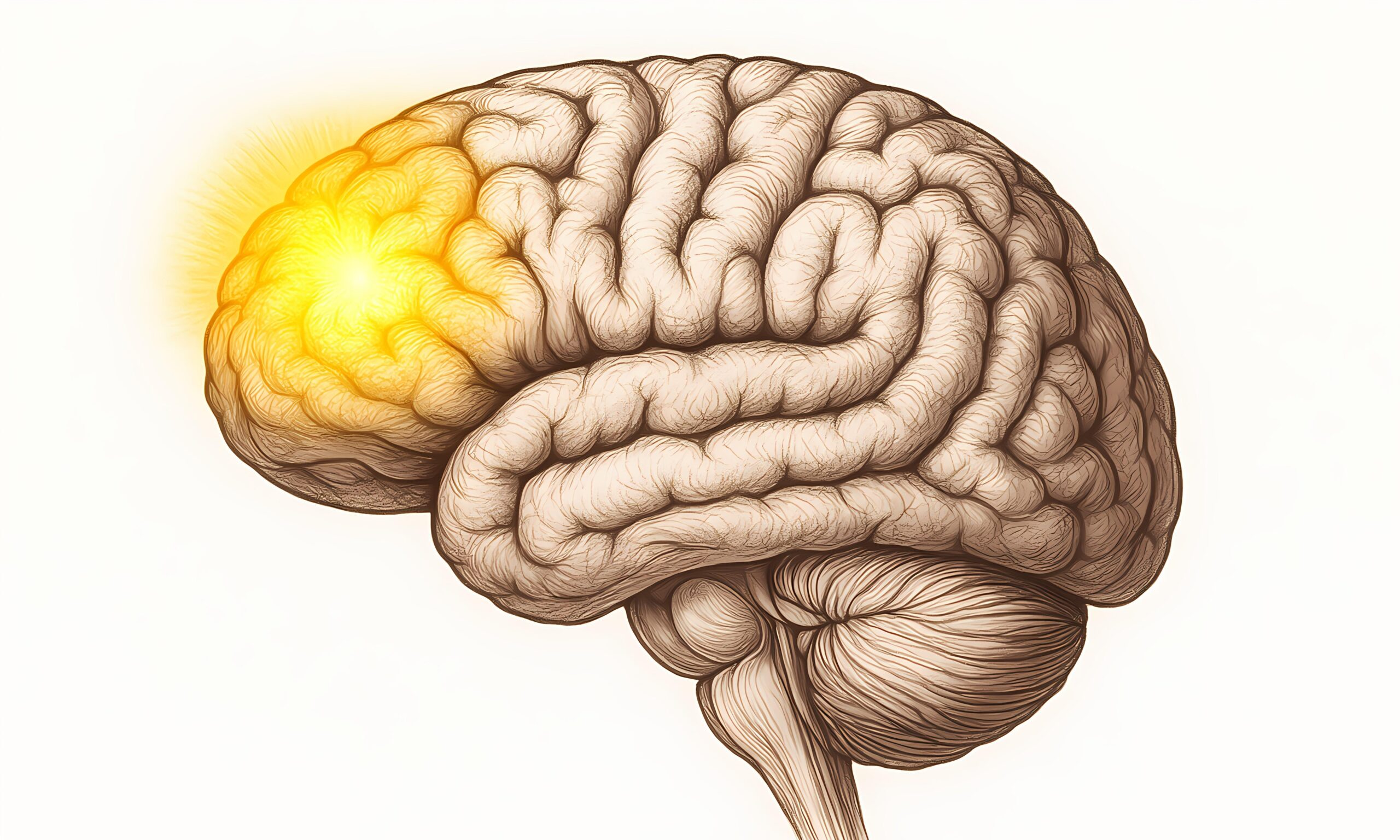
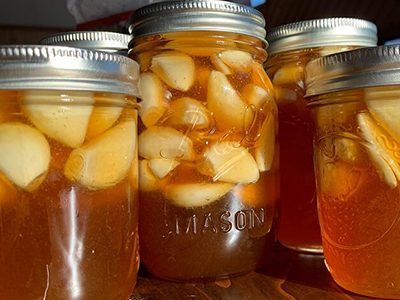
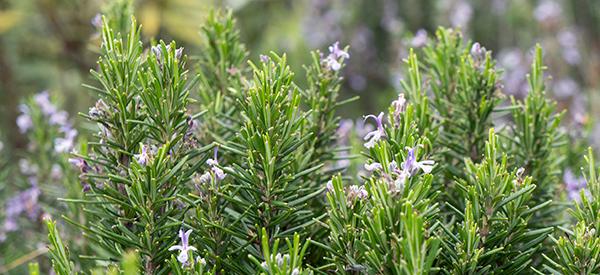
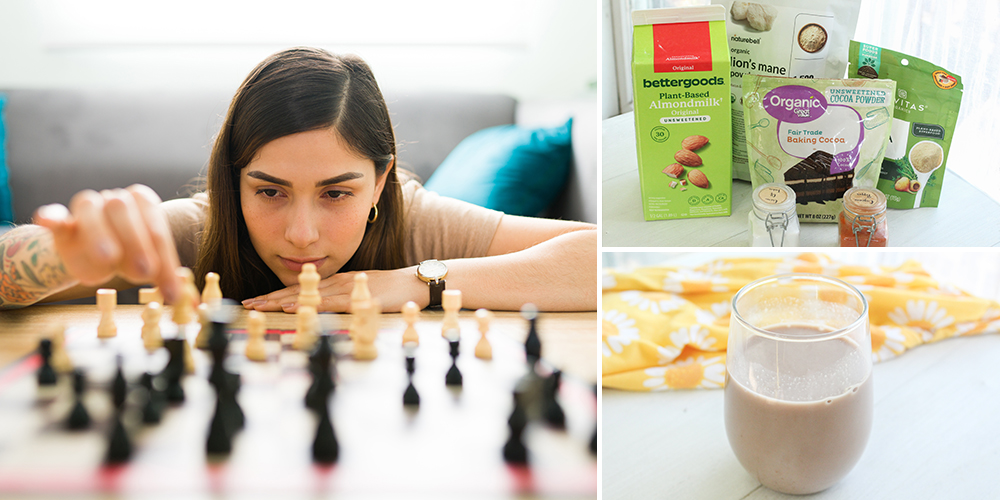
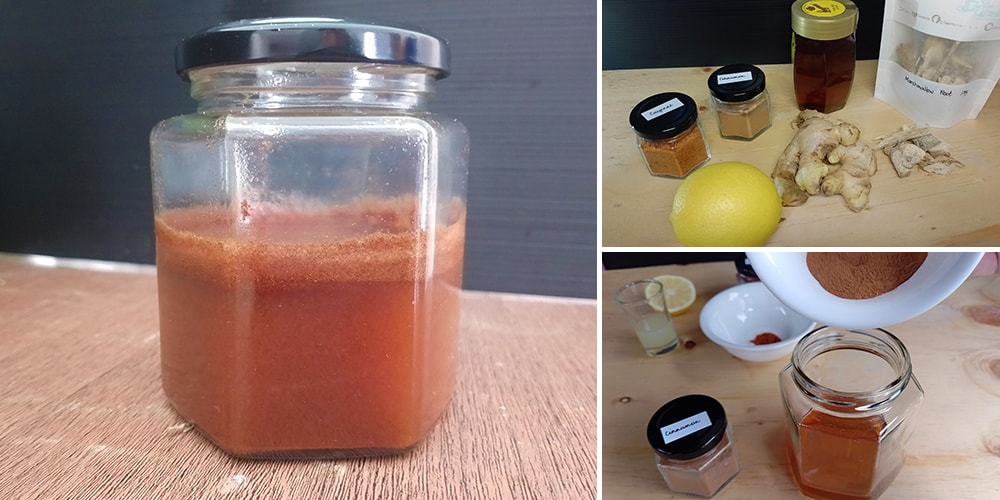
Please continue with the brain map !
Yes, please continue
Yes I would like more about brain
Please continue! Maybe also mentioning if an herb would be beneficial for kids. Daughter had a brain scan because we noticed issues such a memory, speech, and severe anxiety. They diagnosed her with add and dyslexia and wanted to put her on antisezuire medication as it’s been known to help with brain healing and not just seizures. I am trying to research herbs for her to boost brain healing but it’s been exhausting.
Yes! please continue with the Brain Map ! I would love more information on how to keep the brain healthy and maybe slow down or prevent Alzheimer’s disease and other forms of Dementia. I currently use (daily) your tinctures – Lions’s Mane, Reshi, Turkey Tail and Cordyceps. As well as Lemon Balm and Stinging Nettle. I Love them !
yessss, please
Yes, please continue with the brain map. Alzheimer’s runs in the family & it’s very scary. Thank you.
Yes, please continue with the brain map!